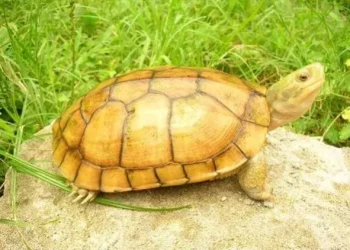Tortoises are fascinating creatures with unique dietary needs that vary by species. As herbivores, their diet primarily consists of a variety of plant materials, and it is essential to provide them with a balanced and nutritionally appropriate diet to ensure their health and well-being. Among the many vegetables and fruits that tortoises might encounter, celery is a common question for tortoise owners. Can tortoises eat celery, and if so, how should it be incorporated into their diet? This comprehensive article explores the nutritional aspects of celery, its suitability for tortoises, and practical dietary guidelines to ensure optimal health for these remarkable reptiles.
Understanding Tortoise Dietary Requirements
To determine whether celery is a suitable food for tortoises, it is crucial to understand their dietary needs and how different foods fit into their nutritional profile.
Nutritional Needs of Tortoises
Tortoises have specific dietary requirements that include a balance of fiber, calcium, protein, and vitamins. The composition of their diet can vary depending on the species, age, and health status of the tortoise, but the general principles are:
High Fiber: Tortoises need a diet high in fiber to support their digestive health. Fiber aids in proper digestion and helps prevent obesity and gastrointestinal issues.
Calcium and Vitamin D3: Calcium is essential for shell and bone health, while vitamin D3 is necessary for the absorption of calcium. A calcium-rich diet helps prevent metabolic bone disease.
Low Protein: Tortoises do not require high levels of protein in their diet. Excessive protein can lead to health issues such as kidney disease and shell deformities.
Vitamins and Minerals: A variety of vitamins and minerals are essential for overall health. Tortoises need a balanced intake of vitamins A, C, and E, among others.
The Nutritional Profile of Celery
Celery is a common vegetable known for its crisp texture and mild flavor. It is often included in human diets as a low-calorie snack and as an ingredient in various dishes. To assess whether celery is appropriate for tortoises, we need to examine its nutritional content.
Key Nutritional Components of Celery
Water Content: Celery is composed of about 95% water. This high water content can be beneficial for hydration but may not contribute significantly to the tortoise’s overall nutritional needs.
Fiber: Celery contains a moderate amount of dietary fiber, which can be beneficial for tortoises. Fiber supports healthy digestion and helps maintain proper bowel function.
Vitamins and Minerals: Celery contains vitamins A, C, and K, as well as minerals such as potassium, calcium, and magnesium. While these nutrients are beneficial, the levels in celery are relatively low compared to other vegetables.
Carbohydrates and Sugars: Celery has a low carbohydrate and sugar content, which makes it a relatively low-calorie food. This can be advantageous for maintaining a healthy weight in tortoises.
Celery in the Tortoise Diet
Given the nutritional profile of celery, it is important to consider how it fits into the broader diet of a tortoise.
Benefits of Celery for Tortoises
Hydration: The high water content of celery can help contribute to a tortoise’s hydration needs. However, it should not be relied upon as the primary source of hydration, as tortoises need access to fresh, clean water at all times.
Fiber Source: The dietary fiber in celery can aid in digestion and promote regular bowel movements. Including a variety of fiber sources in the diet is beneficial for overall digestive health.
Low-Calorie Option: Celery can be a good low-calorie treat, especially for tortoises that are prone to obesity or require weight management.
Limitations and Considerations
Nutrient Density: While celery contains some beneficial nutrients, it is not as nutrient-dense as other vegetables and leafy greens. It should not be the primary vegetable in a tortoise’s diet but rather an occasional addition.
Calcium and Vitamin D3: Celery does not provide significant amounts of calcium or vitamin D3, which are essential for tortoise health. It is important to ensure that the diet includes other calcium-rich foods and appropriate supplementation if needed.
See Also: Can Aldabra Tortoises Eat Fruit?
Potential Digestive Issues: Some tortoises may have difficulty digesting certain vegetables, including celery. It is important to observe the tortoise’s response to new foods and adjust the diet accordingly.
Incorporating Celery into the Tortoise Diet
If you decide to include celery in your tortoise’s diet, it is essential to do so in a way that complements their overall nutritional needs.
Preparation and Serving
Cutting and Chopping: Celery should be cut into small, manageable pieces to prevent choking and make it easier for the tortoise to eat. Chopping celery into bite-sized pieces helps ensure that it is digestible.
Moderation: Celery should be offered in moderation, as part of a varied diet. It can be included alongside other vegetables and leafy greens to provide a balanced nutritional profile.
Monitoring: Observe the tortoise’s response to celery and other new foods. Look for any signs of digestive upset or changes in behavior, and adjust the diet as needed.
Alternative Vegetables and Foods for Tortoises
While celery can be a healthy addition to a tortoise’s diet, there are other vegetables and foods that provide greater nutritional benefits and should be prioritized.
Recommended Vegetables
Leafy Greens: Dark leafy greens such as kale, collard greens, and dandelion greens are excellent sources of calcium, fiber, and vitamins. They should form the basis of a tortoise’s diet.
Squash and Pumpkin: These vegetables are rich in vitamins A and C and provide a good source of fiber. They are also generally well-accepted by tortoises.
Carrots and Sweet Potatoes: Carrots and sweet potatoes are good sources of vitamins and fiber. They should be offered in moderation due to their higher sugar content.
Cucumbers and Bell Peppers: These vegetables are low in calories and provide hydration as well as some vitamins and minerals. They can be included as part of a varied diet.
Calcium-Rich Foods
Cuttlebone: Providing cuttlebone in the enclosure is an excellent way to ensure that tortoises receive adequate calcium.
Calcium Supplements: A calcium supplement may be necessary if the diet lacks sufficient calcium. Consult a veterinarian for appropriate supplementation.
Health and Wellness Tips for Tortoises
Maintaining a healthy diet is just one aspect of tortoise care. Here are additional tips for promoting the overall health and well-being of your tortoise:
Proper Housing: Ensure that the tortoise’s enclosure provides adequate space, shelter, and environmental enrichment. Proper lighting, temperature, and humidity are essential for their health.
Regular Veterinary Check-Ups: Schedule regular check-ups with a veterinarian who specializes in reptiles to monitor the tortoise’s health and address any issues promptly.
Hydration: Provide fresh, clean water at all times. Tortoises should have access to water for drinking and soaking.
Enrichment: Offer a variety of food items and environmental enrichment to keep the tortoise mentally and physically stimulated.
Conclusion
In summary, celery can be a beneficial addition to a tortoise’s diet when offered in moderation. Its high water content and fiber can support hydration and digestive health, but it should not be the primary food source due to its lower nutrient density. A balanced diet for tortoises includes a variety of vegetables, leafy greens, and calcium-rich foods to meet their nutritional needs.
By understanding the dietary requirements of tortoises and incorporating a range of appropriate foods, you can help ensure the health and well-being of these remarkable reptiles. Regular observation, proper care, and consultation with a veterinarian will further contribute to the optimal health of your tortoise.
Related Topics:























